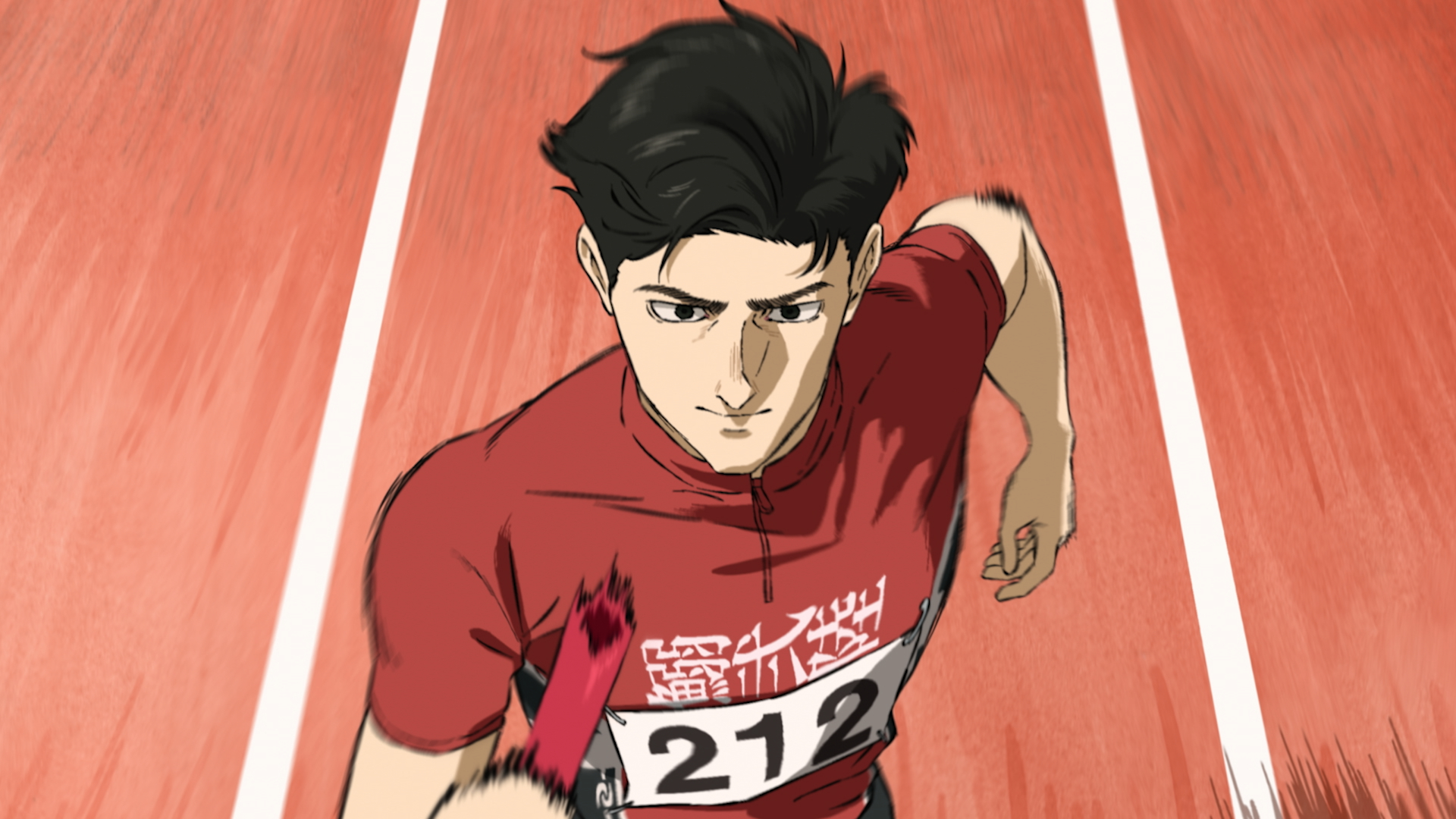For decades, anime has routinely spun athleticism into artistic spectacle, be it ping pong duels, basketball games, or wacky, high-octane races that blur the line between vehicular sport and myth. 100 Meters, the latest theatrical release from GKids and Studio Rock’N Roll Mountain, doesn’t chase flash. Adapted from Uoto’s manga Hyakuemo, this rotoscoped-driven gem trades bombast for breadth, offering a quietly powerful and inspiring view of an athlete's ambition fighting underneath the pitfalls of competition, burnout, and career-threatening injury.
At its core are Togashi, a prodigy whose speed and natural-born athleticism feel God-sent, and Komiya, a scrappy underdog fueled by grit alone. Their friendship-turned-rivalry unfolds across years, framed not by medals or podium envy but by a single refrained question: Why do you run? While the film explicitly answers this question, it never feels like it needs to. It's evident in the way the characters’ bodies move—whether they’re leading the pack, trailing behind chasing glory, or simply chasing each other.
Like Look Back, 100 Meters scratches the itch of watching two people from wildly different walks of life wrestle with maintaining their passion. But where Tatsuki Fujimoto’s work spirals into grief and artistic obsession, 100 Meters stays grounded in the purity of the 100-meter dash, a brutally simple sport where runners have just ten seconds to prove they’re the fastest and etch their name into history. If someone’s a hair quicker, or your body fails you, you’re forgotten in the blink of an eye.
Although 100 Meters flirts with the ephemeral glory of being the best in a sport predicated on “who’s on top right now” over who once was, it never wallows in the futility of the Sisyphean pursuit of greatness. Even in its most agonizing defeats and major setbacks, it refuses to become grim. Instead, it finds beauty in the act of picking yourself back up and starting again—to compete not for legacy, but for love. For the joy of movement, and to run shoulder to shoulder with the like-minded people beside you.
What makes 100 Meters truly magnificent is how, despite being about track and field, it refuses to embellish or exaggerate its modest place in sports. The stands aren’t packed; races aren’t roared over outside of the confines of its niche fandom. The sport isn’t the celestial body around which the universe revolves. It’s just something that 100 Meters’ characters collectively chose.

Visually, 100 Meters’ rotoscope animation—arguably the biggest selling point— is sublime. With herculean production feats like a three-minute and 40-second one-shot long take totaling approximately 9,830 animation cels across foreground and background layers, Rock’N Roll’s craftsmanship is undeniable. But its rotoscoping truly sings in the film’s quieter moments. Subtle gestures, flickers of emotion, and the rhythmic ebb and flow of movement—both in anguish and elation—are illustrated with painterly grace.
Complementing this is the film’s soft watercolor background art, where every brushstroke and stain evokes the cozy tactility of a Little Golden Book, tying its visual poetry together with warmth and texture. A texture that erupts from the frame with rapturous adrenaline as its ensemble hits its eighth gear, diving headlong into their runner’s high to finish out strong with primal ferocity.
100 Meters doesn’t grandstand. It just runs. And in doing so, it discovers something achingly beautiful and universal in the blur of its poetry.
100 Meters hits select theaters on October 10 and will be available nationwide from October 12 to October 14.


